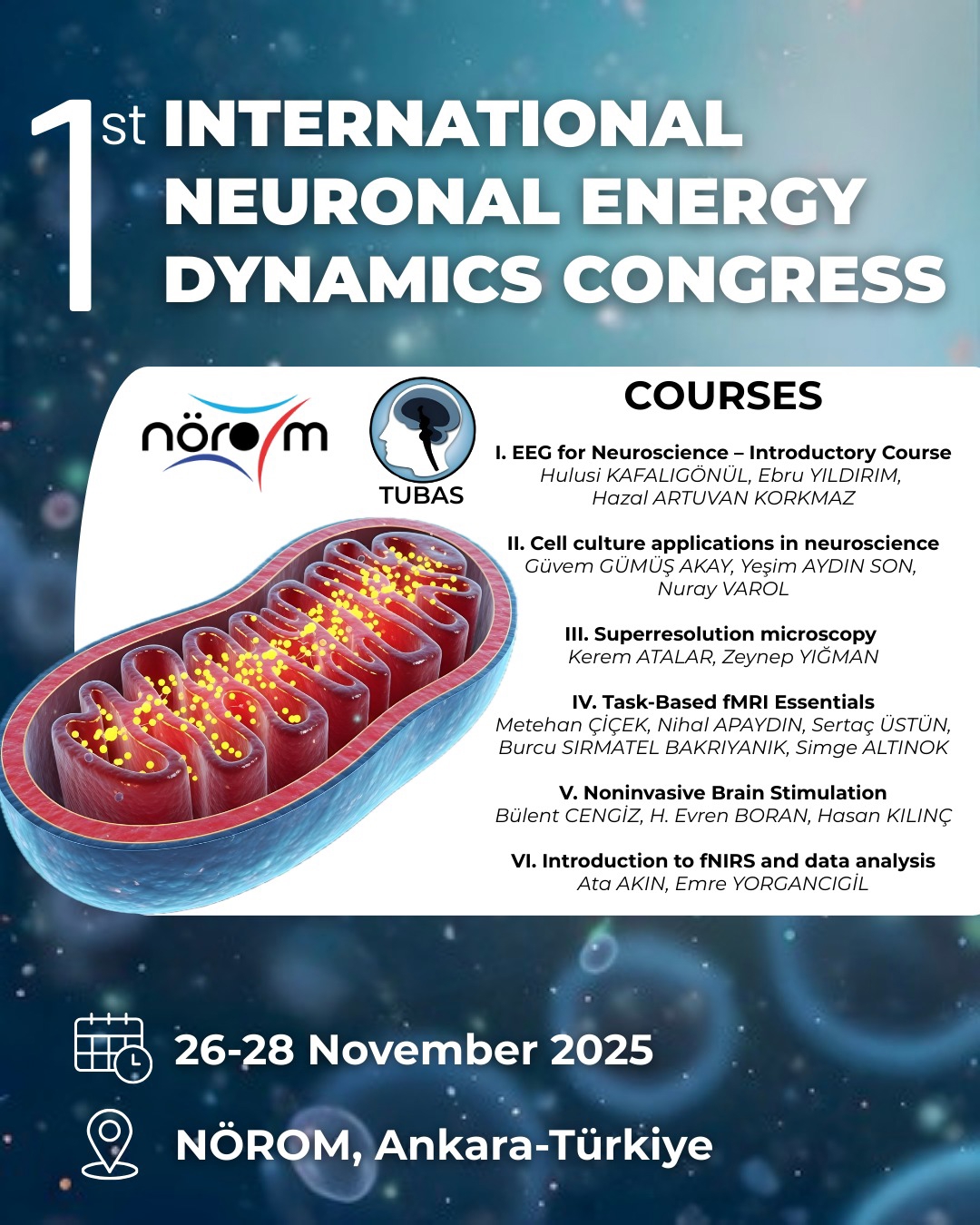Courses
Courses
|
I. EEG for Neuroscience – Introductory Course (Quota: Up to 10 participants) / (Instruction Language: Turkish/English) FULL. Registration is closed because the participant capacity has been reached. This half-day introductory course provides early-career researchers with essential knowledge and basic skills in electroencephalography (EEG), a widely used neuroimaging tool in cognitive and clinical neuroscience. The program begins with an introduction to the principles and applications of EEG, followed by an overview of a typical EEG system at NÖROM. Participants will develop a foundational understanding of EEG methodology/design, data collection, and basic data handling. The course offers an accessible entry point for those new to EEG research. This course helps participants build practical confidence in EEG and inspires them to use these skills in their own research.
II. Cell culture applications in neuroscience (Quota: Up to 10 participants) / (Instruction Language: Turkish/English) Cell culture techniques for the nervous system are fundamental tools in neuroscience research. This half-day hands-on course is designed to provide participants with the knowledge and skills to prepare, maintain, and experimentally manipulate neuron and glia cell cultures. The program will cover essential cell culture methods, along with practical demonstrations of transfection techniques in neuronal and glial cells. Participants will gain insight into how these methods can be integrated into experimental design and learn best practices for selecting the most suitable approach for different research objectives. This course offers a valuable opportunity for researchers aiming to learn and apply cell culture and gene delivery techniques in the field of neuroscience.
III. Superresolution microscopy (Quota: Up to 10 participants) / (Instruction Language: Turkish/English) This half-day course introduces early-career researchers to the fundamentals and applications of superresolution microscopy, an advanced imaging technique that surpasses the diffraction limit of light to reveal nanoscale details of biological structures. The program begins with an overview of superresolution principles and commonly used methods, followed by a hands-on demonstration of the cutting-edge microscopy systems available at the Microscopy Unit. Participants will gain foundational knowledge on experimental design, sample preparation, image acquisition, and basic image analysis in superresolution microscopy. The course aims to build confidence in applying these methods and to inspire participants to integrate superresolution approaches into their own research projects.
IV. Task-Based fMRI Essentials (Quota: Up to 10 participants) / (Instruction Language: Turkish/English) Functional magnetic resonance imaging (fMRI) is a powerful neuroimaging method that monitors brain activity based on changes in blood oxygenation levels. This intensive one-day course is designed to introduce participants to the task-based fMRI approach, from fundamental concepts to data analysis. The program will illustrate the stages of the fMRI acquisition process and demonstrate how tasks are presented during scanning, with practical observation opportunities on the Siemens Magnetom Prisma system. In the analysis section of the course, instructors will provide a demonstration of preprocessing and analysis steps of sample fMRI data using SPM, one of the most widely used software tools in the literature. By the end of the course, participants are expected to gain a comprehensive understanding of the planning, execution, and basic analysis processes of task-based fMRI studies.
V. Noninvasive Brain Stimulation (Quota: Up to 10 participants) / (Instruction Language: Turkish/English)
VI. Introduction to fNIRS and data analysis (Quota: Up to 10 participants) / (Instruction Language: Turkish/English) FULL. Registration is closed because the participant capacity has been reached.
|
 |